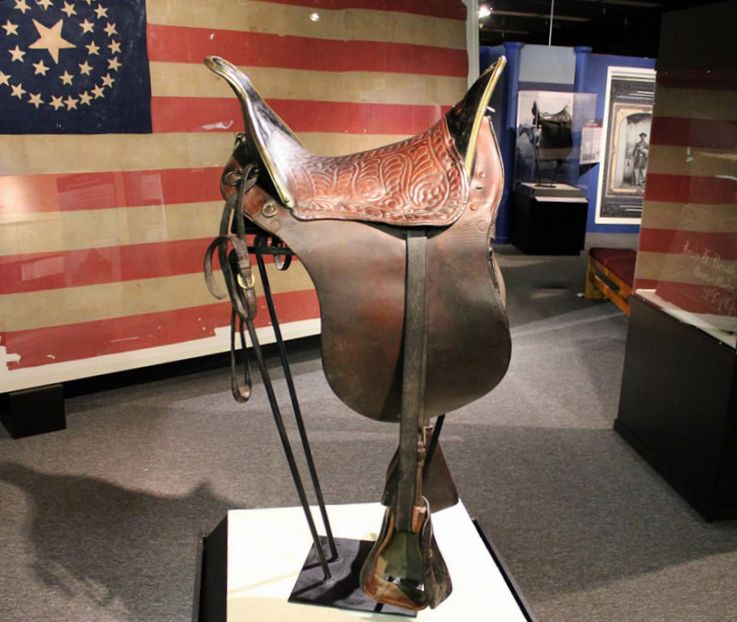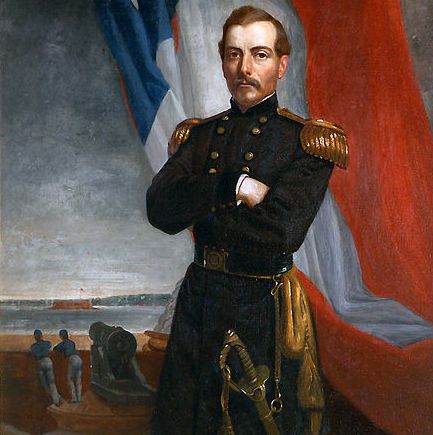Authors:
Historic Era: Era 5: Civil War and Reconstruction (1850-1877)
Historic Theme:
Subject:
June 2020 | Volume 65, Issue 3


Authors:
Historic Era: Era 5: Civil War and Reconstruction (1850-1877)
Historic Theme:
Subject:
June 2020 | Volume 65, Issue 3


For the duration of the Civil War, General Ulysses S. Grant rode on the same Grimsley saddle over countless battlefields, witnessing the deaths of thousands of men who fought to end slavery and preserve the United States against dissolution.
Grant’s saddle, and the ambulance wagon that carried his baggage, are two of many treasures in the U.S. Army Quartermaster’s Museum at Fort Lee in Virginia. That base houses the command that supplies the Army around the world, and develops the strategies and training to sustain it.
The Army doesn't think so, at present. “Every Army installation is named for a soldier who holds a place in our military history,” Gen. Malcolm Frost, the service’s top spokesman, told TIME Magazine. “Accordingly, these historic names represent individuals, not causes or ideologies. It should be noted that the naming occurred in the spirit of reconciliation, not division.”
President Trump agrees. “It has been suggested that we should rename as many as 10 of our Legendary Military Bases," he tweeted recently. "These Monumental and very Powerful Bases have become part of a Great American Heritage, and a history of Winning, Victory, and Freedom.”
But many historians feel differently. "Removing the names of Confederate generals from American military bases is long overdue,” says Peter Cozzens, author of six books on the Civil War. “As West Point graduates, these men were traitors pure and simple.
“Apart from that, at least two of those for whom forts were named--Braxton Bragg and Leonidas Polk were mediocre generals at best,” he notes. “Surely it would be better to honor truly great American generals of later generations such as John J. Pershing and Omar Bradley instead."
Here are short bios of the 10 Confederate leaders honored by the Army with base names:

P.T. Beauregard is the general who started it all, the first named a general in the Confederate Army and the officer who ordered rebel troops to fire on the American flag.
Beauregard was born into a French Creole family on